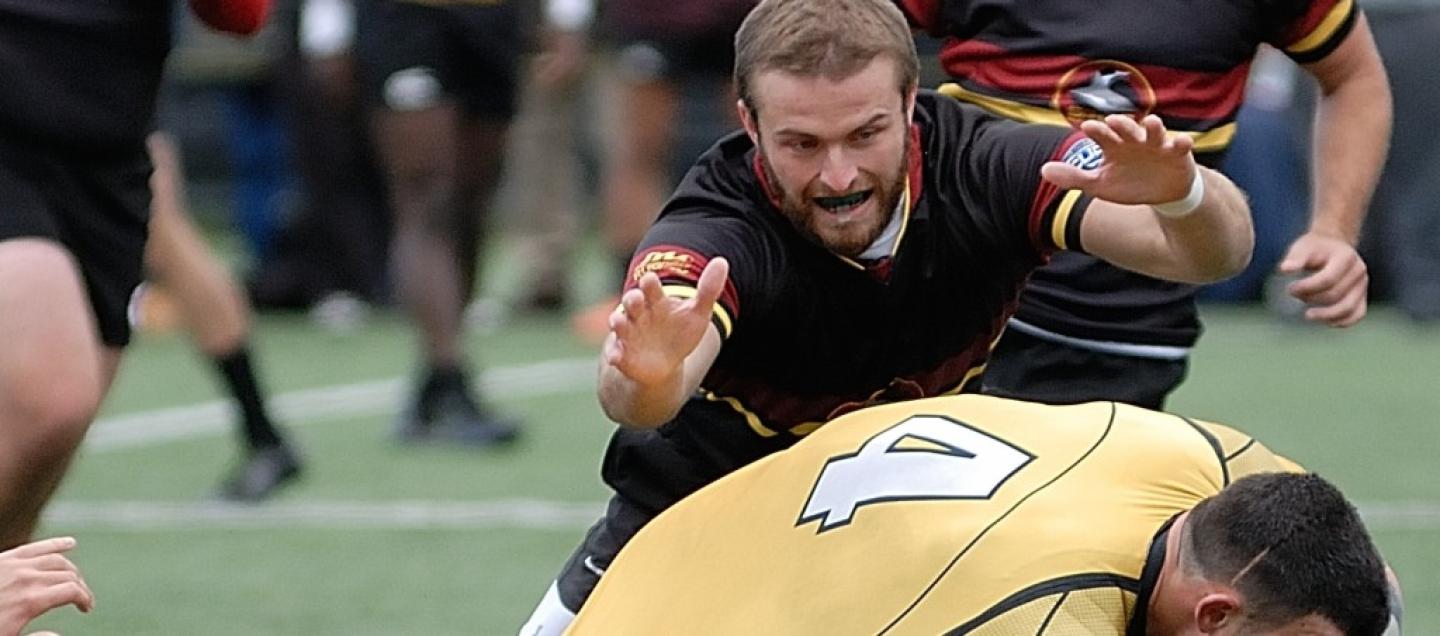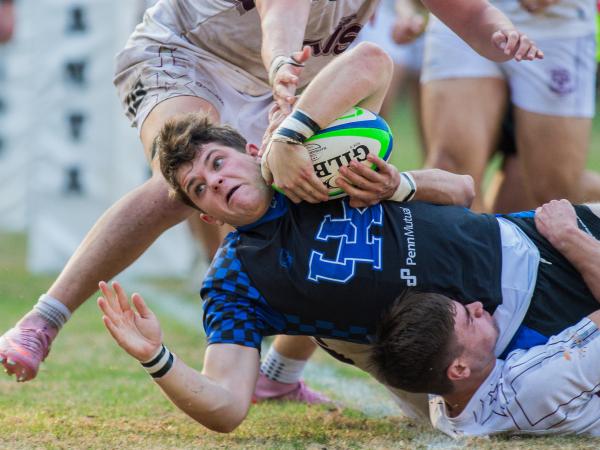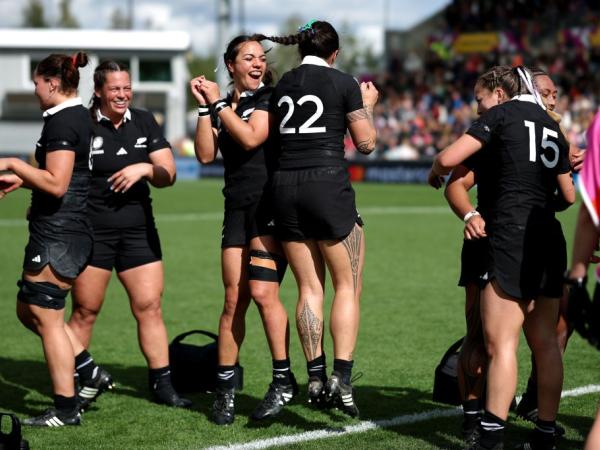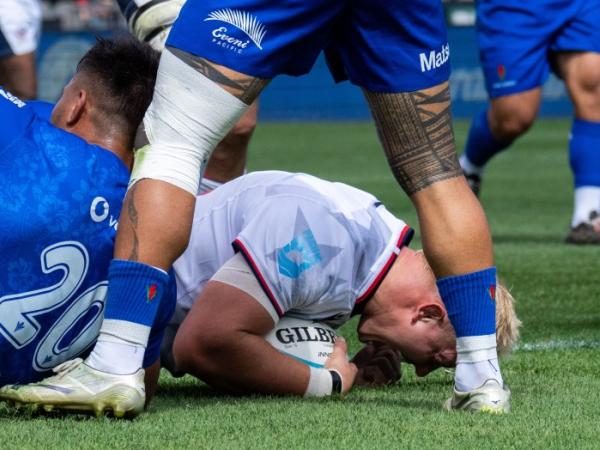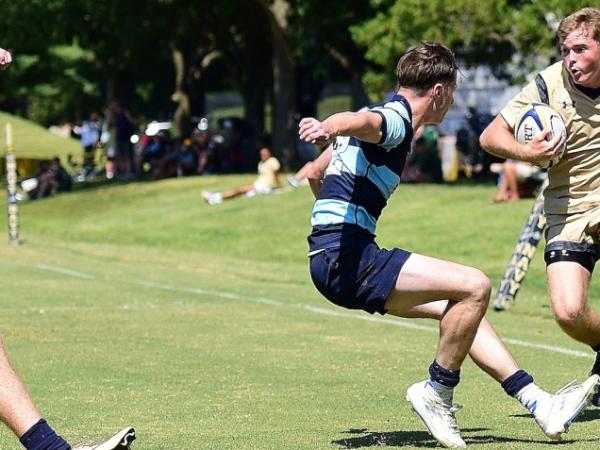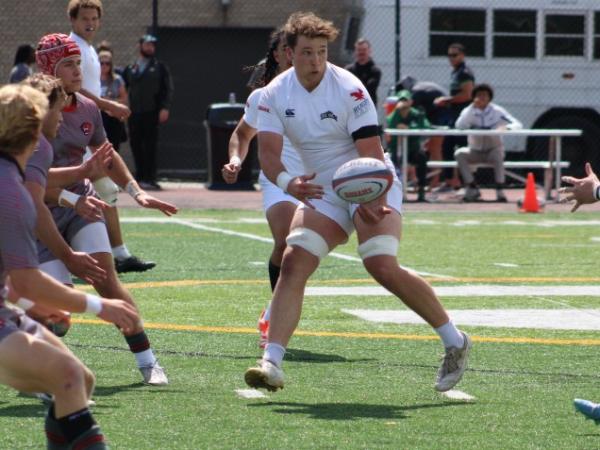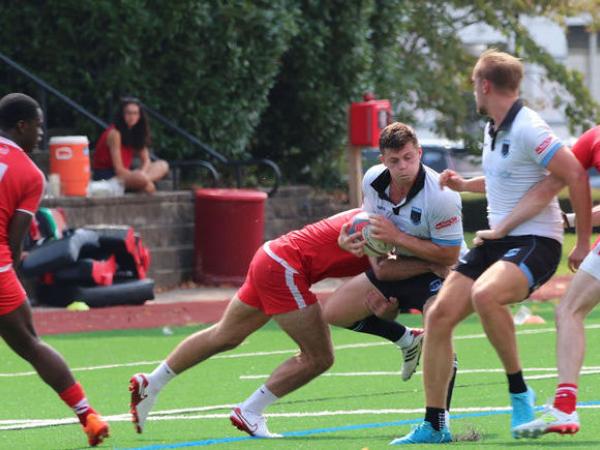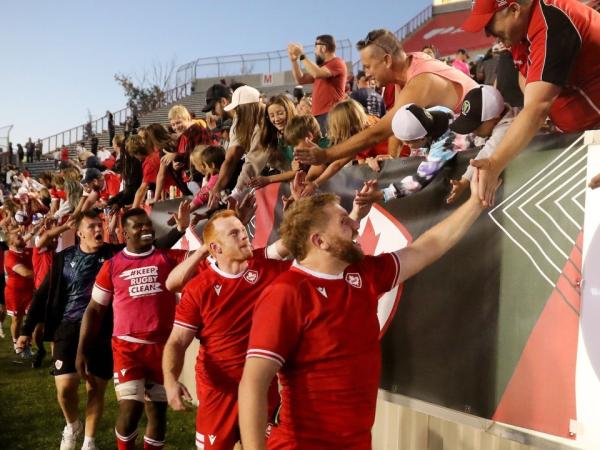Last week Goff Rugby Report previewed the Greenville, NC bracket of the Men’s DII college playoffs by saying that the only non conference-winner, Salisbury, might be the team to watch out for.
Salisbury Coach Bill Creese jokingly texted us after the article was published, saying we were making it hard for them to fly under the radar.
But Salisbury seemed to do OK, regardless, defeating Cardinals Conference champion and GRR #3 VMI 27-18, and then Southern Conference champion and GRR #10 UNC-Wilmington 32-14.
“VMI was tough,” said Creese after the weekend. “Their #10 is really good. We saw some of their games and their forwards were so dominant we didn’t see what he could do. But he kicked six penalties on us and every time he kicked from the hand he placed it right where he wanted. That was surprising. We realized early on, we cannot commit a penalty anywhere, because he will ice it.”
That would be French-trained Eric Maudhuit, who has had some up-and-down games, but when he’s up, he can be deadly.
But eventually Salisbury won the game, holding VMI to no tries.
“Their forwards ran strong and tough, and our guys kept hitting them,” said Creese. “It sucks to have to tackle for long periods, but when you’re running an offense with the same two or three guys taking the ball up, they’re getting hit by different guys, and after a while that sucks, too.”
So it did. The hard-hitting Salisbury defense eventually stopped forward progress, and a simple approach to rugby offense saw them through.
So on to Sunday, where UNC-W had not had too much trouble beating RPI 32-8. Salisbury, meanwhile was carrying some injuries. Center Justin Manko hurt his knee and toughed it out, but when he started limp-running as he scored a try, he was taken out and didn’t play on Sunday. Flyhalf Michael Mullens, who had been a central figure in setting up runners and moving the ball, pulled a groin. Scrumhalf Blake Carroll broke his finger.
“It came down to defense again,” said Creese. “Everybody stepped up, but Scott Wheeler, who usually players hooker but we use al over, set the tone and everyone else followed suit.”
Prop Jacob Fazio was another defensive stalwart. He and Wheeler would make tackle after tackle, bouncing up to do it again.
The Seahawks got two tries, one off a bad chase on a poor kick, and one on a pass back to no one. And Salisbury just did the simple things.
“Offensively it was just ball through hands and getting it out wide,” said Creese. “Earlier in the season they were trying the big skip passes. But we said, why not move it through the hands? It’s ten times faster and you also can commit the defender. It’s so much easier and it just works.”
Mullens was central to executing that philosophy (which has been working for rugby teams since there were rugby teams), and Nick Rodriguez, who has played everywhere in the backline, was unselfish in keeping the ball moving and setting up runners.
“They are maturing, and they did well, but we’ve got to keep playing defense,” said Creese, whose team looks ahead to Minnesota-Duluth, the team they beat for the 2012-13 national title, and the team they lost to in the fall 2013 final.
“Defense is our identity, and going forward it’s going to have to be,” said Creese. “If you don’t come ready to play defense against Duluth, you might as well stay in Salisbury.”





